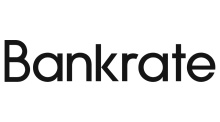What Are Title Loans and Should You Ever Consider One

Joy Wallet is advertiser-supported: we may earn compensation from the products and offers mentioned in this article. However, any expressed opinions are our own and aren't influenced by compensation. To read our full disclosure, click here.
What is a title loan?
- Get as much as $100,000 with rates starting at 5.95% APR*
- Use a personal loan to pay off debt, renovate your home, family needs, and more
- Takes minutes to see how much you can get
- Doesn't hurt your credit score to check
When should you consider a title loan?
Risks of title loans
Alternatives to title loans
Personal loans
Credit cards
Payday alternative loans
Borrowing from friends or family
Negotiating with creditors
- Get as much as $100,000 with rates starting at 5.95% APR*
- Use a personal loan to pay off debt, renovate your home, family needs, and more
- Takes minutes to see how much you can get
- Doesn't hurt your credit score to check
Pros and cons
- Quick access to cash. Title loans can be processed quickly, providing borrowers with access to cash when they need it.
- No credit check. Unlike other types of loans, title loans typically don't require a credit check, making them an option for those with poor credit or financial difficulties.
- Use of the vehicle. Borrowers can continue to use their vehicle while they repay the loan.
- High interest rates. Title loans often come with high interest rates, which can result in high costs over the life of the loan.
- Fees. Title loans also typically come with fees, such as application fees, processing fees, and late payment fees, which can add to the overall cost of the loan.
- Risk of vehicle repossession. If the borrower is unable to repay the loan according to the agreed-upon terms, the lender has the right to repossess the borrower's vehicle, which can cause significant financial and logistical challenges.
- Limited loan amounts. Title loans are typically offered for a percentage of the vehicle's value, which may be less than the borrower needs.
- Cycle of debt. In some cases, borrowers may become trapped in a cycle of debt, where they continually take out new title loans to repay previous ones, leading to a cycle of high interest and fees.
FAQs
- Get as much as $100,000 with rates starting at 5.95% APR*
- Use a personal loan to pay off debt, renovate your home, family needs, and more
- Takes minutes to see how much you can get
- Doesn't hurt your credit score to check
The bottom line
Joy Wallet is an independent publisher and comparison service, not an investment advisor, financial advisor, loan broker, insurance producer, or insurance broker. Its articles, interactive tools and other content are provided to you for free, as self-help tools and for informational purposes only. They are not intended to provide investment advice. Joy Wallet does not and cannot guarantee the accuracy or applicability of any information in regard to your individual circumstances. We encourage you to seek personalized advice from qualified professionals regarding specific investment issues. Featured estimates are based on past market performance, and past performance is not a guarantee of future performance.
Our site doesn’t feature every company or financial product available on the market. We are compensated by our partners, which may influence which products we review and write about (and where those products appear on our site), but it in no way affects our recommendations or advice. Our editorials are grounded on independent research. Our partners cannot pay us to guarantee favorable reviews of their products or services.
We value your privacy. We work with trusted partners to provide relevant advertising based on information about your use of Joy Wallet’s and third-party websites and applications. This includes, but is not limited to, sharing information about your web browsing activities with Meta (Facebook) and Google. All of the web browsing information that is shared is anonymized. To learn more, click on our Privacy Policy link.
Images appearing across JoyWallet are courtesy of shutterstock.com.








